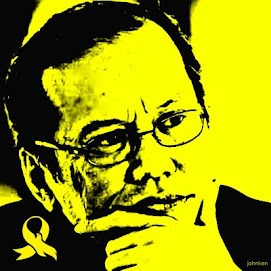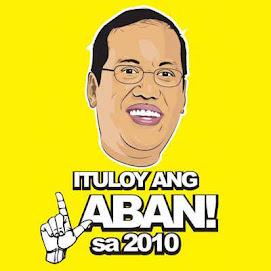
(COMPLETE POST)
- 1. Thou must first know thy self and thy market well.
Trading stocks, currencies gold, or commodity futures, or any other securities(fast moving markets) via the internet can be terribly taxing! Before you decide to plunge into it you must know offhand if you are ready to lose a lot of good night sleep for just monitoring the markets; or if you have the stomach to take frequent roller coaster rides during peak market activities (like watching your investment tremendously grow within seconds just to see it melt down in the next)! You must know first if you have the discipline to be able to maintain your cool during wild and wide price swings and still be able to call the shots objectively according to your pre-determined trading objectives. This means you should not to let fear overshadow you when the market moves against your position, nor allow greed to take the better of you when the market is in your favor. Remember always that markets are frequently unpredictable and that you must learn to adapt to its peculiarities fast otherwise it will eat you up alive.
- 2. Thou must deal only with registered brokers.
Make sure the broker is registered! If the broker is based in the U.S., contact the Securities and Exchange Commission (SEC) and also check with your state securities regulator as well. You can research the investment online using the SEC's EDGAR database at http://www.sec.gov/edgar.shtml. To contact your state regulator call the North American Securities Administrator's Association (NASAA) at (202) 737-0900 or online at http://www.nasaa.org/home/index.cfm. You may also contact the Commodity Futures Trading Association (CFTC) at http://www.cftc.gov/ and the Financial Industry Regulatory Authority (FINRA) at http://www.finra.org/index.htm. The rule of the thumb you must use here is “avoid the unregistered and junk the brokers with recorded complaints.”
For non-US based brokers, you must demand verifiable documentations from the broker regarding their affiliations and representations. Some online brokers are merely introducing brokers (IB), meaning they act as marketing representatives for a bigger broker, in which case you must demand to see the IB contracts and investigate the affiliation of the principal broker. Other brokers “white label” for their principals. Their websites may appear and have the looks of a big broker when in fact they are mere affiliates of other brokers. Don’t deal with white labelers if they don’t publish their principals. White labelers make money through an additional spread of a pip or two built in into their price quotes. While I don’t have anything against white labelers who are affiliated with established brokers of good standings, I would advise you to avoid them unless they have incorporated more add-on features or services other than those offered by their principals to justify the additional cost to you.
Big Daddy's suggestion that you deal only with registered brokers is not being biased against overseas brokers. It's just that online investors must always be provided with a forum or a venue to file any claims they may have against their online brokers in the future. And at this point in time,only U.S. based brokers can provide us with this safety net.
- 3. Thou shall shall not invest money you can not afford to lose!
One of the major pre-placement considerations an investor must make is determining the amount of capital he will be using. There is not set rule for this. In fact, everything is left to the discretion of the investor. However, one must understand that every investment involves a certain amount of risk. Placing an investment (online or otherwise) is in reality a form of risk-taking with the hope that the placement will generate a certain amount of profit after a while. However, the presence of the entailing risks also tells us that there is a possibility of losses. In fact, in fast moving markets the likelihood of losing all of your investment is all too real. This is the very reason why you must not invest more than your 'risk capital'. Risk capital is that part of your liquid assets or your wealth which if lost will not affect your lifestyle or your family's way of life. Never ever invest money meant for your your family's daily subsistence. Doing so will make an emotional wreck out of you. You will turn out to be an emotional trader; setting aside fundamentals; trading out of fear of losing the money on which you and your family depends on; holding on too long to losing positions hoping the market will finally turn into his favor. Once you become emotional trader you start trading on false hopes which ultimately lead you to disaster and the total loss of your investment.
- 4. Thou shall not use unprotected computers!
Never use computers, whether at an airport, library or an office when accessing your financial accounts or records. Make sure you only enter confidential information on websites with the "locked padlock" icon in the browser frames (must have https at the beginning of the web address) Avoid using public wi-fi facilities in accessing your account or executing your online trades. Hackers are everywhere nowadays. It is advisable to do your online transactions only at the comforts and confidentiality of your abode. Turn off and unplug the computer you are using for trading when you are not on trade.
- 5. Thou shall not trade without a plan!
Never attempt to trade without a trading plan. A good money manager does not buy or sell out of whims and intuitions. No matter how long his experiences have been in trading a particular market, the successful investor/trader always prepare a plan before taking a plunge, so to speak. His every action stems from a careful study of a particular security, commodity, or currency contract. He always has a sound fundamental basis (underlying economic data) and/or a reliable technical view for the following trading decision parameters:
o the choice of item/market to trade, (which security, commodity, or currency)
o the specific position to take (whether to buy or to sell)
o the specific price range on which the position will be executed (entry point)
o the targeted price objective or exit point on which the trade must be closed
All these trading decision parameters must be clearly defined and set before executing any trade. Never attempt to trade fast moving markets online in the same manner and with the same do or die spirit as in p lacing bets on online gambling sites. Every trading decision must be based on a trading plan and every trading plan must be followed to the letter.
- 6. Thou shall not execute orders without trading stops!
Every trading plan must incorporate trading stops which shall act as a safety nets to limit your losses in case the market moves unfavorably against your established positions. There is no set or fast rule for creating your stops. However, in establishing your initial position you need to set your initial stop with a wider range - taking into account the highs and lows of the trading range established for the day, the proximity of your entry price to historical turn points (chart supports and resistance levels), and your tolerance level as dictated by your initial equity. (Make it a point that your initial stop must not be beyond the price level where it will eat up more than 20% of your equity). When the market starts to move in your favor, adjust your initial stop turning it into a trailing stop in the direction of the price movement. You must adjust your trailing stops tighter and tighter (closer to the spot price) as prices approach historical turn points or significant technical price levels (such as those established using the Fibonacci theory).
Stops are vital to your becoming a disciplined investor. They help you decide without hesitation when to cut a losing or winning trade. They prevent you from becoming an emotional trader and a perpetual loser. But most important of all,trading stops limit your actual loses. I have seen people lose all their investments in one single session because they adamantly held on to losing positions in the hope that the price will soon make a turn-around. I have also seen people who have reached their profit objectives but out of greed, held on to their positions. And when the market whipsawed they ended up losing everything.
- 7. THOU SHALL NOT TRADE ON MARGINS BEYOND 250:1 RATIO.
One of the main attractions of trading on line is the fact that most brokerage houses offer trading opportunities on margin basis (where you are allowed to put up only a fraction of the cost of the contracts you are buying or selling). This ratio may vary from broker to broker. While this is an advantage to the investors since it allows them to maximize the returns on their investments, it can also work against them because high margin ratios can also wipe out their equity fast in very volatile markets. For the more experienced traders who are incorporating strict money management strategies into their trading plans, the margin ratio may be a non-issue. However, for the ‘newbies’, trading with a lower margin ratio (between 50:1 and 250:1 ratio) will keep them in on volatile markets and allow them ample time to react to rapid price changes in the market place. At the same time, the lower margin ratios allow investors to avoid margin calls because it provides them elbow room to make the necessary adjustments on their positions (like temporarily freezing their positions by executing an opposite trade) thus temporarily avoiding actualizing losses. Investors must remember that brokers are not required to issue margin calls when an account falls below the required maintenance margins. They can just go ahead and cut your positions at a loss. Investors need to read, remember, and understand the fine lines in the brokers’ agreement regarding margins and margin calls.
- 8. THOU MUST ‘DEMO’ TRADE FIRST BEFORE ACTUAL TRADING.
Most online brokers offer demo trading on their sites which allows you to open demo accounts and trade live markets using only virtual money. This is a good chance for you to hone up your trading skills in real live market situations without risking your own money. You may do demo trades for as long as necessary (although some online brokers allow you only a maximum of 30 days to use their platform). Never open a real account unless you already feel comfortable with yourself, your trading plan, the broker’s trading platform, and the volatility of the market you are trading. If you are not yet satisfied with the outcome of your initial demo account, then go ahead and request for an extension of the demo account or, better still, open other demo accounts with other online brokers. Do not forget that trading volatile markets requires a large amount of self-restraint and discipline so never rush to a decision at all times.
- 9. THOU MUST KEEP YOURSELF WELL INFORMED AT ALL TIMES.
You must update yourself with everything that is going on in the financial marketplace. The internet has plenty of sources for real-time financial news updates, commentaries, and forecasts and projections. You must find time to go through the more important items which are relevant to the market you are trading. Do not look only or limit your search to information favoring your current position in the market. You must also be sensitive to contrary news, opinions, and forecasts. Use favorable factual data and information as your basis for initiating your trades. On the other hand, use any contradicting information, opinion or forecast as your basis for setting your trading stops (whether they should be tighter or wider). Subscribe to newsletters from as many online brokers as are available. Most important of all, you must sharpen your skills at digesting all of the available information you happen to go through and be able to create an informed and calculated trading decision from the same as fast as the need arises.
- 10. THOU MUST ALWAYS INSURE AN UNINTERUPTED COMMUNICATIONS WITH YOUR BROKER.
Online investments depend a lot on your uninterrupted internet connections with your broker. Your trading could be adversely affected if for example your internet connection is down at the time the market makes a major move. You can lose a big opportunity to cash in on that market movement, or lose an opportunity to cut your loss if you happen to be on the other side of that market movement. There may also be instances where even the broker’s system breaks down due to heavy traffic, or computer glitches, or other natural calamities which may prevent orders from being filled. The online investors must be prepared for such contingencies. They must be familiar with the broker’s alternative options in case they cannot access their accounts online. And this should include automated telephone trading, fax orders, and direct phone dealing arrangements. All these alternative trading options must be arranged with your brokers prior to instituting your initial trades.












































![Reblog this post [with Zemanta]](http://img.zemanta.com/reblog_e.png?x-id=1b250761-f99b-4be6-8384-510028bbdb2b)














